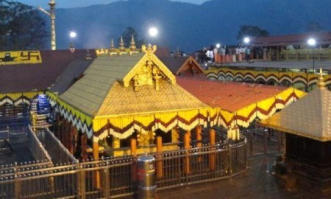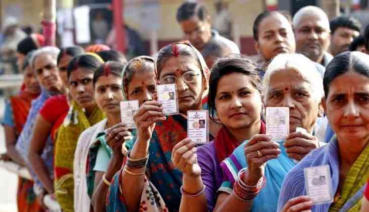





‘Knowledge is power’

Despite Millennia of Oppression, Why Did Not
The Lower Caste And The Untouchables
Revolt Against The Indian Upper Caste?
MIDDLE EAST
World’s
encyclopedic
knowledge
compacted
in
your
hand




Please send your comments directly to the author of the article
Raise the vol to listen to the
lady airing awe @ the SINGLE author encyclopedia
You may also like:
Disturbing stats on black-white inequality
Now girls are a THIRD more likely to go to university than boys
Sound effect: Bhajans (Hindu faith songs) helping Autism
Lessening productivity 50% of Americans have worked with a hangover
Scientists say fist bump is healthier than handshake ?Hug & kiss
Meet Darknet, the hidden underbelly of the searchable Web
Human Being's Reaction to Oppression
As the evolutionists say, all of us have a survivalist
instinct in us. We do anything to get food. Extending that
instinct to the propagation of genes, we do odd things
for
sex too. And when society is brought in, social dignity is
desired by all of us - almost at any cost. The concept of
secrecy that is diluted to privacy which maintains our
prestige is there, for all of us to see!
When people are suppressed, nearly all of these
instincts are hampered. And when that happens, people
resent and oppose the oppressors. But then, we are very
complex animals and are not easily understood. The
guiding principle, however, is 'man is what he thinks'. If
we are lead to believe that whatever is done to our folks
is
right, then, we tend not to do much against it. This is the
reason why the faithful blame the ideology and the
atheists blame the faiths. Painful life just continues. For
example, many Indians did not bother about the British Raj till they were enticed, and
French peasants were exploited for centuries till the time of the French Revolution.
However, it is said that you can fool some people for some time, but you cannot fool all the
people all the time. That is, probably, why there have been many minor and major
revolutions in the world, even since man evolved beyond the monkeys - borrowing
knowledge from the evolutionist of course.
The Indian Caste Exploitation - All
Ingredients For a Revolution
But then, almost like the Muslim's
surprise of not Islamicism India like
Persia or Egypt despite centuries of
Muslim rule in India, or the Christian's
surprise of managing less than 2% of
converts despite slicing almost half
the Muslim's time there, India offers a
3rd surprise in its caste system.
With it having high caste oppressing
lower caste and practicing heinous untouchability, later ones being confined to their poor,
unhealthy areas and misbehaved upon, and the rich Indologists constantly blaming
Brahmanism and using the term Brahminical exploitation India had almost every ingredient
for a revolution by the
oppressed. Furthermore, there was no reason to believe that Indians were any different to
the French or the Americans, who revolted against their oppressors. More importantly,
these exploitations have been going on since God knows for how long? Several millennia.
If nothing else, why not something like a reformation movement against the powerful
Catholic Church?
Despite all that, all these centuries India showed no sign of a social revolution by the
oppressed. While this is a major surprise, Indologists being busy with blaming Brahmanism
(their thoughts ended there) but not even asking
the question, 'Why there was no revolution?', is
not less surprising. Yes, the obvious oppression
is screamed about and despite all Indians
projecting a united gene pool, 'Dalits' are made
to replace the Dravidians in the AIT scheme of
things. Even their origins in Africa are dragged in
to explain the oppression. But, this is possibly
the first time, when the reason behind the lack of
a social revolution is questioned. And matching
the surprise aired above, even answered.
But then, before we understand the caste
system and blame Hinduism, we need to
understand Hinduism sanctioned Varna system.
The Hindu Varna System:
With us having a different race,
gender, anatomy, an accident of
birth and abilities, and varying
even individually, whatever the
communists might make us
believe, we are not equal. We
can only aspire for equal
opportunity for all. But then,
even when that is offered our
aptitude can make us leave
home for the search of God.
It is for this reason; Hinduism
divides humanity into two
groups:
1. Grihastha, the family group.
2. Sadhus, the hermit group, who leave family and seek God.
While, reminding class struggle, the rest of the world saw society economically (financially
and numerically) dividing people into 3 uneasy groups - upper, middle and lower classes -
a system that is still adhered to in the UK, numerically adding one more yet seeing them as
power centres and seeking a team work to produce a harmonious and progressive society,
Hindu Varna system sought the coordination of 4 social powers - the Varnas.
The Varnas included the Brahmans (teachers), the Kshatriyas (rulers and defenders), the
Vaisyas (traders and farmers) and the Sudras (the helping masses). These are not just
arbitrary group names, but each has an inherent power (not necessarily economic)
attached. For example, Brahman has the power of knowledge, the Kshatriya has of
authority, the Vaisya has of wealth (who can forget the influence of Mr. Murdock on UK
politics) and the Sudras have the power of the numbers (Who can forget trade unions?).
Consequently, while it makes a healthy body symbolise the society, not forgetting the
function and the inherent Varna power, it designates body parts to each Varna Rigvedic
Purusha Sukta (RV 10.90.11–12). Thus, head/ brain represents the Brahman, arms the
Kshatriya, torso or tummy the Vaisya and the legs as support represent the Sudras.




Varnas on Human Anatomy
The French Revolution
The Verna System





Darwin Cartoon
WOMEN’S POWER: ITS PAST, ITS PRESENT, ITS FUTURE: FEMOCRACY
WEB PAGES
OUR OFFERING
UPLOADED ITEMS
OUR EMAIL
kri200@womenspowerbook.org
QUESTION



















